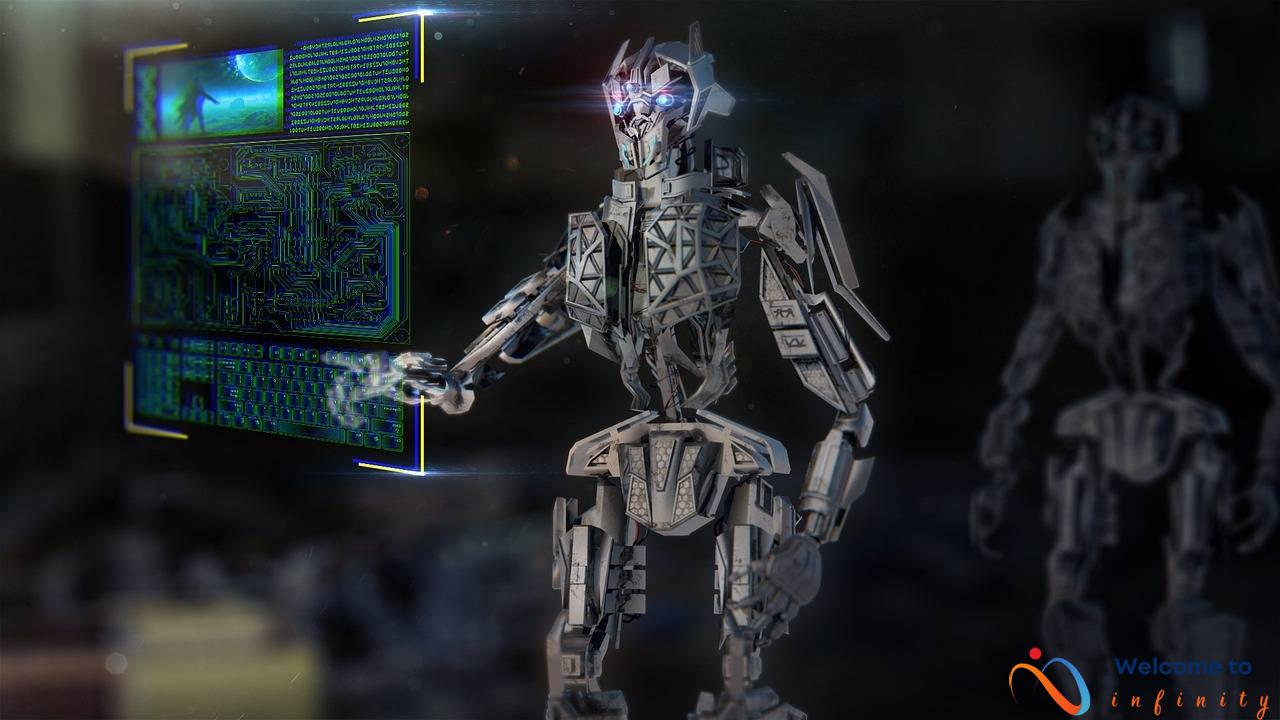Artificial Intelligence (AI) has been advancing at an incredible pace, and cognitive computing is its latest breakthrough. Cognitive computing seeks to replicate human thought processes and models, and this has become feasible with the help of AI. In this article, we will explore the role of AI in cognitive computing and the potential impact it could have.
Cognitive computing is the merging of AI and cognitive science, which seeks to replicate human thought processes using advanced algorithms and computing power. This technology enables machines to learn and reason like humans, both quantitatively and qualitatively.
With the help of AI-powered computing, cognitive computing can analyze vast amounts of data, recognize patterns, and determine decision-making that resembles human thinking. This makes cognitive computing systems more accurate, more efficient, and more reliable, opening the door to a wide range of applications across numerous industries.
Cognitive computing has enormous potential, and its benefits are already evident. Its application spans various fields, including healthcare, finance, and manufacturing, among others. AI's role in cognitive computing is critical in providing the required computing power and underlying algorithms to simulate and replicate human thought processes.
The future of cognitive computing is promising, and the potential impact it could have on various industries is significant. Despite the challenges it faces in terms of ethical considerations, data privacy, and bias in decision-making, addressing these challenges will be critical in ensuring its successful implementation as an integral part of various industries.
The Evolution of AI and Cognitive Computing
Artificial intelligence has gone through significant advancements, starting from rule-based systems to the latest development in the field – cognitive computing. With the help of machine learning and deep learning, AI has significantly improved the capabilities of cognitive computing. Cognitive computing has the aim to simulate human thought processes and patterns, and with AI, it has become possible.
Cognitive computing is a subset of artificial intelligence that uses various techniques, such as natural language processing, machine learning, computer vision, and deep learning, to mimic the human brain. Cognitive computing is designed to improve decision-making, better analyze vast amounts of data, and detect patterns that resemble human behavior.
AI has played an essential role in the evolution of cognitive computing by providing intelligent algorithms and computational power that enables cognitive computing systems to analyze large datasets and detect patterns. AI is responsible for improving cognitive computing systems' accuracy, efficiency, and reliability, and has significantly contributed to the development of various cognitive computing applications, including speech recognition, natural language processing, image recognition, and virtual assistants.
Overall, the evolution of AI and cognitive computing has been fascinating, and the potential applications of these technologies are enormous. The use of AI in cognitive computing has revolutionized various industries like healthcare, finance, and manufacturing, and with further development and research in the field, the possibilities of AI and cognitive computing are endless.
The Role of AI in Cognitive Computing
Artificial intelligence (AI) is a game-changer in cognitive computing, providing the computing power and algorithms necessary to simulate human thought processes, patterns, and behaviors. With AI, cognitive computing can analyze vast amounts of data, detect patterns, and make decisions that resemble human behavior. By mimicking human thought processes, cognitive computing can solve complex problems that previously required human intervention.
AI is the foundation of cognitive computing, making it possible to create intelligent systems that can reason, learn, and interact with humans. With the help of AI, cognitive computing systems can understand and interpret natural language, recognize images and patterns, and learn from data. This can have profound implications across a wide range of industries, including healthcare, finance, and manufacturing.
One of the most significant benefits of AI in cognitive computing is the ability to analyze vast amounts of data quickly and accurately. By detecting patterns and trends in data, cognitive computing can help organizations make better decisions and improve their operations. For example, in the healthcare industry, cognitive computing can analyze medical records and help doctors diagnose diseases more accurately.
- AI provides the computing power and algorithms required to simulate human thought processes, patterns, and behaviors.
- Cognitive computing analyzes vast amounts of data, detects patterns, and makes decisions that resemble human behavior.
- AI is the foundation of cognitive computing, making it possible to create intelligent systems that can reason, learn, and interact with humans.
In conclusion, AI plays a crucial role in cognitive computing, facilitating human-like thought processes and enabling intelligent systems to analyze vast amounts of data and make decisions that benefit society. As we continue to develop cognitive computing systems that rely on AI, we must continue to address ethical and privacy concerns to ensure that these systems are robust, reliable, and accessible to all.
Applications of AI in Cognitive Computing
AI is a crucial component of cognitive computing, essential in its various applications, including speech recognition, natural language processing, image recognition, and virtual assistants. With AI, cognitive computing systems can recognize patterns and respond to natural language, making them more accurate and efficient.
Virtual assistants are one of the most popular applications of AI in cognitive computing; they help users complete tasks and answer questions by using AI to understand and respond to their requests. For example, Amazon's Alexa uses AI to interpret voice commands and online queries to provide users with relevant information, play music, make calls, and even control smart home devices. Siri, on the other hand, can recognize natural language and complete tasks on iPhones and other iOS devices.
The healthcare industry can benefit significantly from AI in cognitive computing. With the vast amount of biomedical data available, AI can help physicians diagnose and treat patients more accurately and efficiently. AI-powered medical imaging systems can detect and identify diseases and injuries in radiological images much faster than humans. Moreover, cognitive computing can be used for drug development and optimization, gene editing, and other applications.
AI in cognitive computing has applications throughout various industries. From optimizing manufacturing processes to improving customer service, the potential benefits are endless. AI can analyze vast amounts of data to identify trends and patterns that can help decision-making more accurately and efficiently. As technology continues to evolve, AI in cognitive computing will revolutionize industries like finance, education, and even sports.
The Future of AI in Cognitive Computing
As technology continues to evolve, the role of AI in cognitive computing is set to become increasingly important. Industries such as healthcare, finance, and manufacturing stand to benefit enormously from cognitive computing's potential impact.
Cognitive computing can revolutionize decision-making by analyzing vast amounts of data, detecting patterns, and making informed decisions that emulate human behavior. For example, cognitive computing in healthcare can help doctors diagnose diseases faster and more accurately, while in finance, it can detect and prevent fraudulent activities. In manufacturing, cognitive computing can streamline the production process and predict maintenance issues. All of this can reduce costs and drive efficiency in various industries.
Cognitive computing, coupled with AI, can also improve customer service and enhance user experience through virtual assistants and speech recognition technology. Moreover, it can save time and increase accuracy in tasks such as data analysis, research, and planning.
However, as we move towards the future of AI in cognitive computing, we must also acknowledge the challenges. We need to address ethical considerations and privacy concerns, as well as the potential risk of bias in decision-making. To fully capitalize on the advantages of cognitive computing, we must overcome these challenges and ensure that these systems are robust, reliable, and accessible to all.
Challenges of AI in Cognitive Computing
Despite AI and cognitive computing's potential, there are still significant challenges that need to be addressed. One major challenge is ethical considerations. AI systems can be trained to make decisions independently, and there is a risk that they may make decisions that are unethical or violate social norms.
Data privacy is another issue that must be addressed. As cognitive computing systems rely heavily on personal data, there is an increased risk of data breaches or misuse. It is essential to ensure that data privacy laws are adhered to and that data is collected, stored, and processed securely.
Bias in decision-making is also a significant challenge. AI systems are only as reliable as the data they are trained on. If the data used to train these systems is biased, then the decisions that the systems make will also be biased. This can result in decisions that are unfair or that perpetuate existing social inequalities.
To address these challenges, it is critical to establish guidelines and regulations for ethical AI development. It is also important to ensure that data is collected and processed fairly and that decision-making models are transparent and unbiased. By addressing these challenges, we can ensure that cognitive computing is implemented effectively and that its potential benefits are realized.
The Role of Human Intelligence in Cognitive Computing
The success of cognitive computing depends on both AI and human intelligence. While AI provides the computing power and algorithms needed to simulate human thought processes, human input is necessary to ensure the accuracy and fairness of cognitive computing systems.
Human intelligence comes in the form of domain knowledge, which helps to provide context and meaning to the data being analyzed. For instance, in healthcare, a doctor's expertise is crucial in interpreting medical data and providing insights that can improve patient outcomes. In finance, an analyst's understanding of the market and financial trends is essential in making informed investment decisions.
Data curation is another critical aspect of human intelligence that is needed in cognitive computing. Humans are responsible for selecting, preparing, and managing the data that is fed into cognitive computing systems. They must ensure that the data is accurate, unbiased, and relevant, which is critical in ensuring the reliability of the results produced by cognitive computing systems.
Ethical considerations are also important in cognitive computing. Humans must ensure that these systems are designed and used in an ethical manner, taking into account issues such as privacy, security, and bias. For instance, in facial recognition software, humans must ensure that the system is not biased against certain demographic groups, such as people of color or women.
Ultimately, human intelligence is essential in ensuring that cognitive computing systems are accurate, fair, and ethical. While AI provides the computing power, it is human intelligence that provides the context, meaning, and ethical considerations that are necessary for cognitive computing to be successful.
Conclusion
Cognitive computing is a rapidly evolving field that has the potential to revolutionize many industries. The advanced capabilities of cognitive computing powered by AI can help streamline processes, improve decision-making, and reduce costs in various industries.
The role of AI is essential in cognitive computing, as it provides the necessary computing power and algorithms to simulate human thought processes and patterns. With the help of AI, cognitive computing can analyze vast amounts of data, detect patterns, and make decisions that resemble human behavior.
As we continue to develop cognitive computing systems, it is crucial to address the ethical and privacy concerns. The risk of bias in decision-making and data privacy concerns must be taken seriously, and measures must be taken to ensure that these systems are robust, reliable, and accessible to all.
We should also acknowledge that while AI is critical to cognitive computing, human intelligence is equally important. Domain knowledge, data curation, and ethical considerations are necessary to ensure the accuracy and fairness of cognitive computing systems.
In conclusion, cognitive computing has enormous potential to transform industries, and AI's role in cognitive computing cannot be overstated. Addressing ethical and privacy concerns and incorporating human intelligence is critical to ensure the successful implementation of cognitive computing in various industries.











